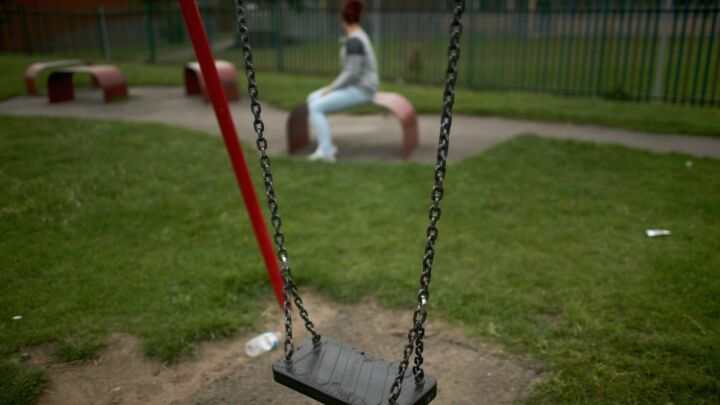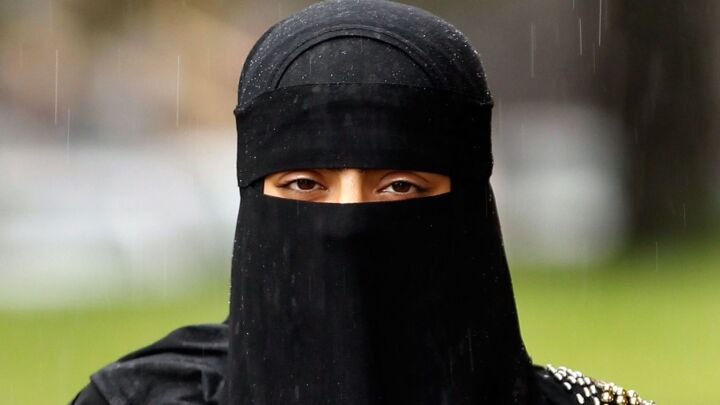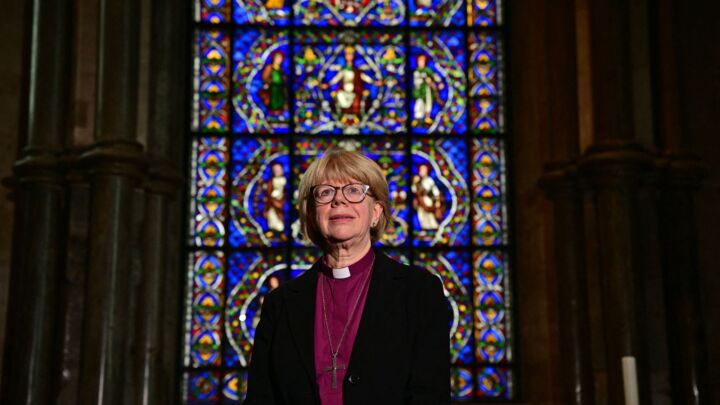How diversity damages justice
The idea that we need more black, female or gay judges calls into question the objectivity of law.

Want unlimited, ad-free access? Become a spiked supporter.
Sadiq Khan, the UK’s shadow justice secretary, recently lamented the slow pace of change towards a diverse judiciary. In announcing that the Labour Party would consider using quotas to achieve a ‘balanced judiciary’, Khan stated that ‘people’s differing backgrounds and experiences bring different and rich perspectives that improve their decision-making as judges’. Khan is echoing the views of many politicians and senior judges that, when it comes to justice, a difference can make a difference.
The argument for a diverse judiciary has little to do with promoting equality of opportunity. It is generally accepted that the days are over of discriminating against women or black and ethnic-minority applicants for judicial posts. Neither does the legal profession, a feeder service for the judiciary, discriminate. There may be pockets of discriminatory practices within the legal profession, but if so, they are no more than pockets. Indeed, given the social force that seeks a diverse judiciary, the impetus is nowadays in favour of promoting candidates who have the personal characteristics that will facilitate that goal.
In the non-discriminatory world of the twenty-first century, the argument for judicial diversity has sought and found a different justification. The one with most currency is the Khan view that relates justice to a judge’s personal characteristics. In his opinion, there are too many judges who ‘are male, white and Oxbridge’, whereas recruiting from a diversity of ‘backgrounds and experiences’ would ‘improve their decision-making as judges’.
Khan’s celebration of judicial diversity has a recent but notable pedigree. The Advisory Panel on Judicial Diversity, appointed by the then justice secretary, Jack Straw, and chaired by Baroness Neuberger, said in 2010 that ‘judges drawn from a wide range of backgrounds and life experiences will bring varying perspectives to bear on critical legal issues’. Two years later, a House of Lords report claimed that ‘a more diverse judiciary can bring different perspectives to bear on the development of the law and to the concept of justice itself’.
Lady Hale, the UK’s only female Supreme Court judge, used to be sceptical of the argument that women judges were bound to make a difference, but she has now swung firmly to the view that sometimes they do. More generally, she has argued that judicial decision-making will be improved not just by having more female judges, but also from having more people of a different ethnicity and professional background. Or, as the House of Lords report put it, ‘diversity incorporates a number of different elements, including disability, sexual orientation, legal profession and social background’.
The argument used today to promote judicial diversity is essentially this: justice is influenced by the personal characteristics of the decision taker. Justice dispensed by the heterosexual male may be different from justice dispensed by the female, the black person, the Asian person, the gay man or the disabled woman. Justice may even be different according to where the judge went to university.
This difference-makes-a-difference approach to justice has killed stone dead the notion of justice as an objective and universal norm. If there is a perspective on justice that is influenced by the judge’s background and experience, then justice can never be either objective or universal. Justice would be subjective and influenced by a person’s immutable personal characteristics – no amount of reason or debate could result in a universally held view.
Lady Hale is aware of critics who claim that if difference makes a difference then justice becomes subjective and fragmentary. She seeks to overcome the problem by arguing that ‘the promise of a diverse judiciary is not the promise of a multiplicity of approaches and values each fighting for recognition, but of a judiciary enriched by its openness to viewpoints previously marginalised and decision-making which is better for being better-informed’ (1). But Lady Hale cannot have it both ways: justice is either influenced by personal characteristics or it is not. Justice is either gender-neutral or it is not. Justice is either universal or it is particular. Those who consider the personal characteristics of judges to be so important as to warrant the use of quotas to ensure a diverse judiciary (Khan) or as to warrant affirmative action (Hale) see justice as being influenced by personal characteristics.
Despite the problems inherent with the politics of difference, a slight tweaking of the argument would turn it from being the enemy of justice to its potential saviour. For while it is wrong to argue that justice is influenced by the personal characteristics of the decision taker, it is right to argue that justice is influenced by the values of the decision taker. As Justice Cameron of the South African Supreme Court put it: ‘Judges do not enter public office as ideological virgins. They ascend the bench with built-in and often strongly held sets of values, preconceptions, opinions and prejudices. They are invariably expressed in the decisions they give, constituting inarticulate premises in the process of judicial reasoning.’ (2)
There may be a loose association between personal characteristics and ‘values, preconceptions, opinion and prejudices’. But it is no more than loose, as Lady Hale accepts when noting that ‘you do not have to be a woman to be a feminist and the reverse is also true’. In other words, the association between gender and values is loose.
But whatever the association, there is an important and fundamental difference between personal characteristics and values. Personal characteristics are immutable; values are not. Values, beliefs and opinions can all change and, indeed, are expected to change when subjected to the rigorous debate of the courtroom in pursuit of justice. It is this ability to change that renders justice both possible and universal. A justice based on reason is capable of being universally shared; a justice influenced by personal characteristics is not.
Modern society is already characterised by a diversity of opinions and an absence of shared values. It is this absence of shared values that causes justice to be contested so often today, as one person’s justice is another’s injustice. The politics of diversity will cause a further fragmentation of justice. It leads to debates that have a shrill and shouty character, with a protagonist’s views anchored in personal characteristics and resistant to reason.
Lady Hale claims that the view of women judges ‘shows how gendered a concept like common sense can be’. She notes that the presence of female judges can put some arguments off limits by making ‘it harder for [male judges] to voice unacceptable views’. The person speaking on the basis of his or her own background or experience often speaks from the heart, with an attachment to his or her cause that dislikes challenge. In contrast, none of us is tied to values that we accept or reject on the basis of reason.
It is our capacity to engage in reason, freed from personal characteristics, that makes justice possible. In order for this to happen, there also needs to be a consensus about the type of society we want and the values that inform it. In the days of Lord Denning (an English judge between 1944 and 1982), judges could refer to ‘the man on the Clapham omnibus’ as being the personification of society’s shared values. Today’s judges are expected to refer to the white, black, Asian, gay or straight man and woman on the bus, train and bicycle across the land and even then make adjustments for a whole host of other personal characteristics. This is an approach to justice that makes consensus impossible; indeed, it makes justice impossible.
Judicial diversity as a policy objective informed by the notion of difference is an argument that can only fragment the notion of justice. It will encourage applicants for the bench to attribute their values to personal characteristics that are underrepresented in the judiciary. It will encourage judges to try to find a justice that stems from the woman’s perspective, the black perspective, the Muslim perspective, and so on.
And despite Lady Hale claiming that the argument for judicial diversity is not about a ‘multiplicity of approaches and values each fighting for recognition’, logic and practice suggest otherwise. The wider public is not immune from the difference-makes-a-difference argument. If a black magistrate may see things differently to a white magistrate, then why shouldn’t the black defendant object to being tried by white magistrates? Why shouldn’t the white disabled male accused of raping a black able-bodied woman expect that some jurors are white, disabled and male? And why shouldn’t the complainant expect that some jurors are black, able-bodied and female?
These examples draw out the logic of the politics of diversity. Yet arguments in the justice system over personal characteristics already happen. It is not unusual for a judge to exclude from a jury persons with a particular personal characteristic (such as having a family association to the police force) – the implicit justification for such an exclusion being that a juror cannot transcend his personal characteristics to arrive at justice. No sooner was Constance Briscoe, a black part-time judge, sentenced to 16 months’ imprisonment for perverting the course of justice than the Society of Black Lawyers claimed the ‘excessive’ sentence was racially motivated and that they planned to lodge a formal complaint. By nurturing difference, the legal system encourages us all to view justice through our own particular spectacles.
Many critics of judicial diversity are wrong to claim that judicial merit is purely about technical characteristics such as the five ‘I’s: intelligence, industry, independence, integrity and incorruptibility. These characteristics are essential, but they say nothing about a judge’s values. A judge may have the five ‘I’s in spades, yet have a particular view of justice at odds with the view of another. These different views of justice can only be surmounted if the inarticulate premises that inform judicial decisions are articulated, drawn into the open and debated. Justice can prevail when that debate results in consensus. Justice cannot prevail when the debate is at best hidden, and at worse ossified by being anchored to a person’s personal characteristics.
There’s nothing radical in Sadiq Khan’s call for radical thinking to ensure judges are selected from beyond the male, white and Oxbridge world. By celebrating the politics of diversity, Khan is reinforcing a mainstream opinion that difference makes a difference. He merely proposes to consider increasing judicial diversity with the use of quotas. Today’s true radical needs to rescue justice from the fragmenting influence of the politics of difference. Only a debate about judicial values can turn the forces of fragmentation into forces that could create a universal and objective view of justice.
Jon Holbrook is a barrister based in London. Follow him on Twitter: @JonHolb
(1) Women, Judging and the Judiciary: From difference to diversity, Erika Rackley, 2013
(2) The English Judges: Their Role in the Changing Constitution, Robert Stevens, 2002
You’ve read 3 free articles this month.
Support spiked and get unlimited access.
Help us hit our 1% target
spiked is funded by readers like you. It’s your generosity that keeps us fearless and independent.
Only 0.1% of our regular readers currently support spiked. If just 1% gave, we could grow our team – and step up the fight for free speech and democracy right when it matters most.
Join today from £5/month (£50/year) and get unlimited, ad-free access, bonus content, exclusive events and more – all while helping to keep spiked saying the unsayable.
Monthly support makes the biggest difference. Thank you.










Comments
Want to join the conversation?
Only spiked supporters and patrons, who donate regularly to us, can comment on our articles.